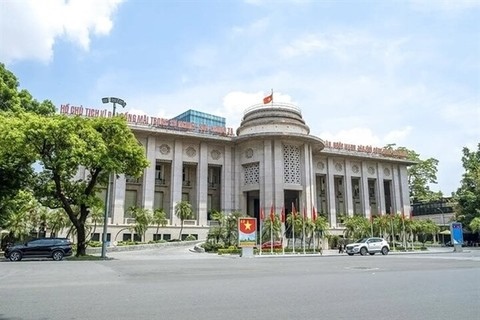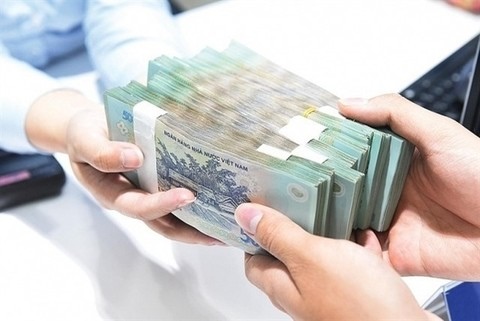Domestic lenders reclaim financial trust
Domestic lenders reclaim financial trust
Vietnam’s bank stocks are making their way back onto investors’ radar, as the sector recovers from lingering bad debt issues and strives towards Basel II standards.

Reclaiming the crown
In recent months, stocks of Vietnamese banks have earned significant attention thanks to their renewed appeal with foreign investors.
Most recently, Ho Chi Minh Development Bank – HDBank – raised $300 million from international investors, after selling shares to existing investors through the book-building method.
The $300 million HDBank deal was the second-largest ever in the Vietnamese banking sector, just below Vietcombank’s $460 million deal in 2007. The number of registered purchases tripled the amount of shares on offer, similar to the heavily-subscribed deal of VPBank last May.
Following the share sale, HDBank made its debut on the Ho Chi Minh Stock Exchange last Friday, hitting the price ceiling on the first trading day.
Late last year, the Holland-based PYN Elite Fund spent $40 million on 4.99 per cent of TPBank’s shares, making its first foray into the domestic banking sector. Last October, Vietnam Opportunity Fund (VOF), managed by VinaCapital Group, acquired nearly 5 per cent stake at Orient Commercial Bank (OCB) in a deal valued at $11 million. This is the first banking investment made by VOF since 2012, signalling the fund’s growing optimism about the sector.
In a recent note to investors, Vu Huu Dien, fund manager at Dragon Capital, maintained a positive view on Vietnam’s banks, as they benefit from recent restructurings that are reducing non-performing loans and repairing their balance sheets. Banking is currently the biggest sector in the portfolio of Vietnam Enterprise Investment Limited, the flagship fund of Dragon Capital.
Analysts pointed out that Vietnamese lenders can now push their cleanup of bad debts thanks to a recovering economy, growing consumer confidence, and especially Resolution 42, which paves the way for banks to sell collaterals at market prices.
Dennis Hussey, CEO of ANZ Vietnam and head of the Greater Mekong Region, expressed his optimism that the upcoming Basel II will force Vietnamese lenders to improve risk management, raise capital, and manage non-performing loans. All of these improvements will bode well for the financial sector in general.
Banks versus investment funds
Despite warming sentiments from investment funds, it seems like foreign banks are thinking otherwise. Recently, a number of foreign banks have withdrawn their stake in Vietnamese lenders after years of partnership. The latest case is BNP Paribas who divested its entire 18.68 per cent stake from OCB last week, ending a 10-year alliance between the two lenders.
Previously, HSBC Vietnam also withdrew from Techcombank, while Standard Chartered exited Asian Commercial Bank.
These divestments have sparked concerns that these overseas institutions are trying to exit Vietnam. There is also speculation that international banks have a lower risk appetite than investment funds, prompting them to get rid of their stake in debt-ridden Vietnamese lenders while funds are flocking in.
However, these rumours have been put to rest by industry insiders. Aymar de Liedekerke Beaufort, Ho Chi Minh City-based country head for Vietnam at BNP Paribas, confirmed to VIR that the OCB stake – a minority stake without strategic involvement – was not in line with their overall business development plan in Vietnam anymore.
“This is the reason we decided to dispose of our remaining holdings [at OCB],” said de Liedekerke Beaufort. He stressed that BNP Paribas remains committed to the Vietnamese market with two branches and significant stake in the Vietcombank Cardiff Life Insurance Company.
Similarly, ANZ’s Hussey repeated that the bank has huge plans for Vietnam, following the sale of its retail banking arm to Shinhan Bank. The bank only sold its retail business due to strategic changes on the corporate level and not because it wants to exit Vietnam, said Hussey.
Lien Le, head of institutional research at Maybank Kim Eng Securities, told VIR that these withdrawals are due to either changes in the global banks’ strategies or in their domestic partners.
“Those divestments do not necessarily mean they have a lower risk appetite than investment funds,” Le said.
The analyst further pointed out that increased appetite by foreign funds towards domestic banks is likely to increase in 2018, as more banks such as TPBank and Techcombank gear up for listing or plan to raise capital to comply with Basel II. Banking is also the second-largest sector in Vietnam’s stock market, taking up 20 per cent of the VN-Index.
“With all of these new listings, investment funds who allocate their capital based on sectors will have more bank stock options to choose from,” said Le.











